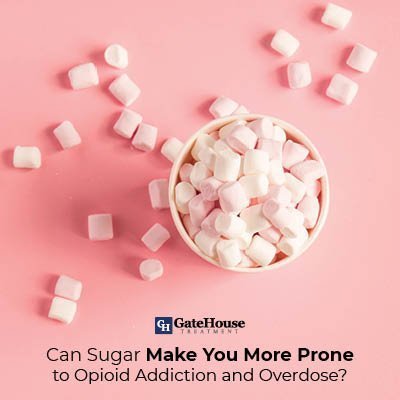
According to new research, the answer is YES. A diet high in refined sugars makes children and adults more susceptible to opioid addiction and overdose.
Approximately 20,000 people died of fentanyl-related overdoses in the United States in 2017, and in Canada, there were at least 2,816 opioid-related deaths. During 2017, over 1,000 people have died of illicit drug overdoses in British Columbia. High schools are starting to stock up on naloxone; the overdose-reversing drug, and universities are training staff how to use it.
However, nobody is talking about sugar. And why would they?
Yet, there is substantial evidence that refined sugar can promote addictive behaviors by activating the brain’s rewards centers in much the same way addictive drugs do. Opioid abuse is also associated with poor dietary habits, including preferences for high sugar foods, as well as malnutrition. These connections have led scientists to ask the question of whether or not refined sugar may affect a person’s vulnerability to opioid addiction.
To explore the role of a high sugar diet in opioid addiction, researchers investigated whether unlimited access to high fructose corn syrup altered rats’ neural and behavioral response to the semi-synthetic opioid, oxycodone.
The findings suggested that diet high in corn syrup may dampen the reward associated with oxycodone and therefore encourage higher consumption of the drug.
High fructose corn syrup is a refined sugar that typically includes more fructose than glucose. It is a commonly used food additive in North America, produced by chemically processing corn. While it is in a ton of foods, it most often is found in soft drinks and that is also where it seems to have the biggest impact on our health. In fact, there is a significant connection between the consumption of sugar-sweetened beverages and weight gain, metabolic syndrome, and hypertension.
The researchers recently explored the impact of high fructose corn syrup on behaviors and brain markers of addiction in lab rats. In one study conducted by students of the research, the animals had unrestricted access to bottles containing a water solution sweetened by high fructose corn syrup. After about a month of voluntary drinking, the bottles were removed and after a few sugar free days, animals’ behavioral and neural response to oxycodone were assessed.
Similar to other opioids, oxycodone induces effects that include analgesia, euphoria, and feelings of relaxation. Oxycodone is highly addictive and has impacted the lives of 1,000s of Americans. The US National Survey on Drug Use and Health revealed that approximately 27.9 million people aged 12 or older used oxycodone products. Moreover, 4.3 million people aged 12 or older reported misusing oxycodone containing products in the past year which has led to an increase in users attending drug treatment programs.
At the neural level, high fructose corn syrup decreased oxycodone induced release of dopamine, which is the desire for promoting neurotransmitter activity in the brain’s reward center. At low doses, it was found that sedative drugs like opioids and alcohol normally interfere with inhibition and stimulate a variety of psychomotor behaviors such as sociability, extroversion, talkativeness and interest in activities. The study done on rats found that exposure to high fructose corn syrup reduced this stimulation by oxycodone.
According to the researches, the experiments showed that chronic exposure to high fructose corn syrup had an impact on both the neural and behavioral responses to oxycodone, resulting in changes likely to affect drug-taking and drug-seeking behavior. They suggest that a high sugar diet may dampen the reward associated with taking oxycodone, and this potentially could cause more people to take more of the drug.
The results also suggest that nutrition and high fructose corn syrup intake in particular play a large role in our responses to drugs—a finding that is highly relevant to both clinical uses of opioids and the treatment of addiction in drug treatment programs.
If you or a loved one are struggling with opioid use, contact us her at GateHouse Treatment and we can help. We are available to you 24/7. Call us at (855) 448-3588.
- Cymbalta Withdrawal: Causes, Symptoms, And Management - October 12, 2023
- Boredom in Recovery: 5 Tips to Avoid Relapse - October 6, 2023
- Overconfidence and Rehab: Avoiding Relapse - October 4, 2023




